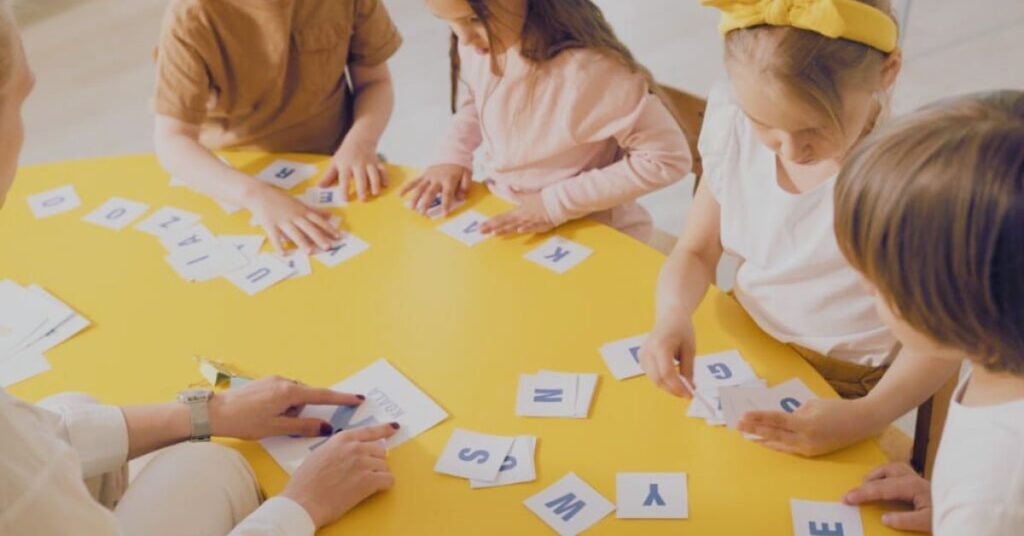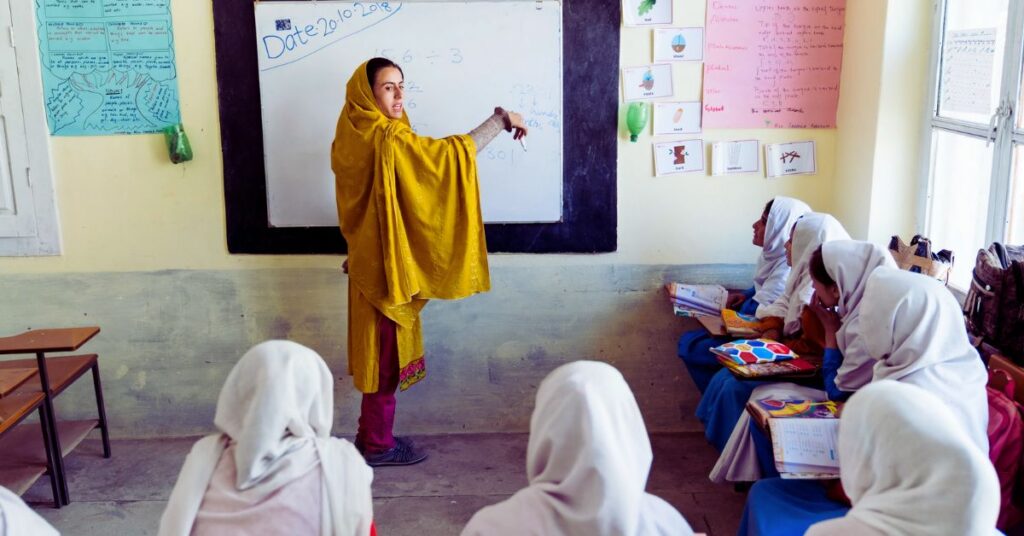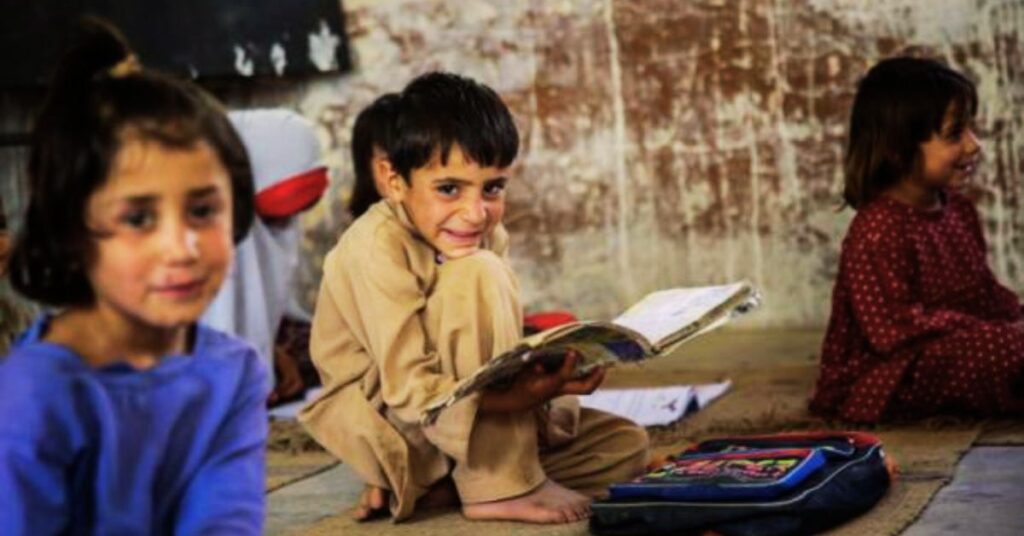A classroom where discouragement of questions is at its peak, memorization is more prominent than understanding, and in the classroom, the students are conditioned to obey rather than think.
Sadly, this is the reality of the education system of Pakistan, where students are not allowed to question in most cases. The world is encouraging students to start questioning and be creative, and many more, but the education system of Pakistan is trapped in outdated teaching methodologies that are eliminating the creativity and questioning ability of the students. There is no focus on skills in the education system of Pakistan; they only prioritize grades, but not intellect.

Then how can students have the skill of problem solving and how simply produce the mass with a lack of skills?
The Teaching Crisis: Quantity Over Quality
With approximately 1.83 million teachers across all levels of education, Pakistan should, in theory, have a strong academic foundation. However, according to the Annual Status of Education Report (ASER) 2023, only 40% of public school teachers possess subject-specific knowledge at a satisfactory level. Most rely on traditional rote-learning techniques, failing to equip students with analytical reasoning skills.

The issue is compounded by teacher absenteeism, with a World Bank (2022) report finding that in some regions, public school teachers have an absence rate of up to 20% on any given day. Moreover, political interference protects underperforming educators, making accountability nearly impossible.
Student Mentality: Trained for Compliance, Not Creativity
Pakistan’s examination system promotes rote memorization over conceptual learning. According to the Pakistan National Human Development Report, four out of five students rely on cramming to pass exams. Creativity and problem-solving take a backseat, leading to:
- A culture of shortcuts, including cheating and reliance on private tutors.
- Declining university admission standards, where even high scorers struggle with basic comprehension.
- Graduates who find it difficult to compete in global knowledge-based economies.
Another alarming issue highlighted by the Economic Survey of Pakistan is that the country spends only 1.7% of its GDP on education. This investment in the education system is the lowest in South Asia.

The lowest investment is badly affecting the quality of education and the advancement of the students toward a digital world.
The Economic Divide in Education
Pakistan’s education system is a tale of two extremes:
- Elite Private Institutions – Offer world-class facilities, international curricula, and well-trained faculty.
- Public Schools & Low-Cost Private Schools – Overcrowded classrooms (often 40+ students per teacher) and a lack of basic infrastructure.

Due to the massive gap, about 22.8 million students are still out of school. Pakistan is the second-largest country that has the largest proportion of its population out of school in the world. If attention is not given and without intervention, this gap will widen, and the majority of students will be out of school without access to education.
This will make the reputation of Pakistan worse if there is no intervention.
The Politics of Education: A Barrier to Progress
Education in Pakistan is deeply politicized. The curriculum is influenced by the union of politicians and teachers, making ideological and individual agendas more prioritized. One more reason for the disruption in the education system is the frequent changes in the education system, like frequent shifting of policies; factors like these are weakening the education system further.
Also Read: Balochistan’s Future Hinges on Urgent Education Reforms
The Way Forward: Reform or Regression?
Pakistan’s education system requires urgent reform to foster innovation and critical thinking. Key steps include:
- Teacher Training & Accountability – Implement strict performance assessments and certification programs.
- Curriculum Overhaul – Move from rote learning to skills-based, analytical education.
- Technology Integration – Expand digital learning initiatives, especially in rural areas.
- Increase Education Budget – Allocate more than the current 1.7% of GDP to improve school facilities and teacher salaries.
- Depoliticize Education – Ensure merit-based appointments and consistent curriculum policies.
Without these changes, Pakistan risks producing generations of followers rather than leaders, innovators, and problem-solvers. The future of education in Pakistan depends on whether we embrace reform or remain stuck in mediocrity.
Also Read: Hiring Retired Professionals in Higher Education Institutions: A Challenge for Youth Employment
What do you think about the education system of Pakistan? creating followers or thinkers? give your suggestion in the comment section below and share with others also!
A university student and content writer interested in sharing ideas and creating useful, research-based content for online platforms. Focused on helping users find clear, practical information through well-structured guides.

